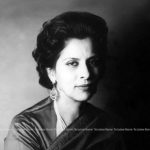The man who knows how to criticise
TLO finds out more about Professor Sharib Rudaulvi, one of the most important literary critics of today
Writers are a dime a dozen but literary critics are rare. This is despite the unquestionable importance of a critic in the world of literature.
The literary culture of Lucknow too owes its fragrance to many poets and writers par excellence, but blossoms that leave an indelible scent and continue to enrich the garden of literary criticism, are few. Professor Sharib Rudaulvi is one of them. He has infused a new lease of life to the world of Urdu Literature through his exemplary critique of great works. But one wonders, why he chose literary criticism after all, when he could have become a writer or a poet.
He explains, “I started as a poet and participated in many mushairas in East Pakistan (present Bangladesh), USA, UK, Dubai and other places but then I stopped writing poetry. I found that the appreciation in sher and shayari was temporary.”
While still a student of Lucknow University he was inspired by teachers like Professor Ehtesham Hussain and Aaley Ahmad Suroor and wrote a book titled ‘Dramatic Elements in the Marsiya of Anees’ that was much appreciated. That encouraged him to take up literary criticism as a profession.
This decision of the humble scholar and the unmatchable critical prowess of the man with a velvety voice has enriched Urdu Literature. Sharib Rudaulvi is not only adept in outlining minor details to bring out the hidden beauty of a work but he has mastered the art of pointing out sour ingredients of a literary work, coated in polite yet assertive words.
In his more than 50-year long career, he has never ever resorted to eccentrics or going over the top in his criticism, nor has he drawn swords with those who differ with him. His flawlessly polite behaviour seems to have seeped into his pen too, bringing dignity to the art of literary criticism.
Like many of his contemporaries, Sharib Rudaulvi’s literary journey started from the adda of yore- Noori Hotel! This is the same quaint bistro, that had once nestled in the crowded streets of Aminabad, well-known for playing host to some famous customers like politicians of the 1950s as well as the who’s-who of the literary world including one of Lucknow’s most loved poet Majaz.
Eminent journalist and friend, Hafeez Nomani remembers the Sharib of yore in the following words:
Sharib was equally attractive and magnetic then as he is now. The only difference is that those were the days of the rising sun whereas the present is enveloped in a penumbra of dusk. Those days, his hair used to be curly and the sherwani was his identity. If my memory isn’t betraying me, then I do not recall him wearing a pant and shirt in those days.
Born as Musaiyab Abbas, the Rudauli born genius later adopted the nom de plume of Sharib Rudaulvi. He post-graduated from Lucknow University and finished his Ph.D on Theoretical Basis of Modern Urdu Literary Criticism in 1965. He has not looked back since then.
Apart from being a professor in some of the most prestigious colleges and universities, including Jawaharlal Nehru University (JNU), Rudualvi has 14 books to his credit which have become landmarks in the field of literary criticism. Especially, his critique of the Urdu Marsiya, focusing on its dramatic elements, is a guiding light for the literati and those enamoured by this genre of poetry.
Rudaulvi wrote a monograph on the legendary poet, Asrar-ul-Haq Majaz in 2009. Sharib Rudaulvi- Adabi Safar ke Pachaas Saal is edited by Dr. Hasan Mosanna and is a superb compilation of articles written by luminaries like Arif Naqvi, Professor Ehteshaam Hussain, Ibrahim Ahmad Alvi, Hafeez Nomani and Irshad Amrohvi to name a few, all paying rich tribute to the precious work done by Rudaulvi.
He was recently awarded the Kaifi Azmi Award by the Kaifi Azmi Academy and the Pride of Lucknow Award by Lucknow Literary Festival.
Undeterred by a personal tragedy like the loss of his 20 year old daughter, Shua Fatima, Sharib Rudaulvi continues to add invaluable jewels to literary criticism, ensuring that Urdu Literature suffers no loss, come what may.
Saira Mujtaba




